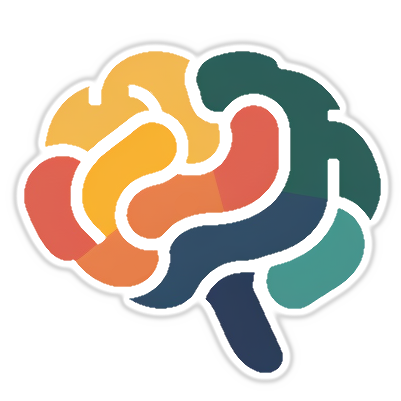Test anxiety is normal, but it can be managed with preparation and confidence.
Meaning:
Prepare well for exams and approach them with a positive mindset to reduce anxiety.
Generate unlimited quotes now! Find educational mental health videos on our social media.
What is Mental Health?

Mental health includes our emotional, psychological, and social well-being. It affects how we think, feel, and act. It also helps determine how we handle stress, relate to others, and make healthy choices. Mental health is important at every stage of life, from childhood and adolescence through adulthood and can be affected by both biological and environmental factors.
Just like physical health, mental health can be healthy or ill. People with mental wellness experience good mental well-being, have a satisfying life, a strong sense of purpose, and display generally positive emotions and can overcome challenges at home or school. Mental health can unfortunately deteriorate, causing mental illness, which hinders daily functioning at home and school.
Most Common Student
Problems
• Experiencing Low Motivation
• Lack of Concentration
• Too Many Distractions
• Not Finding The Right Accomodation
• Dealing with Homesickness
• Depression
• Choosing A Major
• Financial Problems
• Lack of Sleep
• Being a Social Butterfly
• Procrastination
• Remembering Facts
• Lack Of Interest
• Organization
• Text Anxiety
• Technology Related Problems
• Loneliness

Importance of
Mental Wellness
Students without a growth mindset are more afraid of failure and mistakes. They will choose to avoid challenges and mistakenly attribute their failure to their incompetence.
Promoting mental wellness in students creates a growth mindset, allowing them to view failures as learning opportunities and persist despite challenges, which is important for academic and personal success.
Growth Mindset: A Key to Student Success By Sarah Pedzinski
Mental wellness supports healthy self-esteem by helping students focus on their own achievements without comparing themselves to others, leading to greater satisfaction and confidence in their work and abilities.
The Importance of Promoting Mental Wellness to your Students By Pearson
Mental wellness is connected to improved academic performance as it helps students stay organized, avoid procrastination, and effectively manage their time and classes.
The Importance of Promoting Mental Wellness to your Students By Pearson
What is Educational Psychology?

Educational psychology is the study of how students learn and develop during education. It looks into the processes of learning, motivation, and cognitive development to understand how students think, learn, and remember information. By examining these areas, educational psychology provides important information into effective teaching strategies and ways to create supportive learning environments. This field is important for applying psychological principles to enhance student outcomes and their outlook on life, helping them reach their full potential and become their best selves.
Our Mission
Let's recap the common problems students face in their education, such as procrastination, lack of organization, limited guidance, low self-esteem, comparing themselves to others, fear of failure, and more. These problems lead to a negative outlook on life and education, causing students to let failures define them and to avoid putting in effort, believing it's not worth it and beyond their control.
Now that we understand the problem, our mission is clear. Our mission is to apply psychological principles in education to support students as they navigate school and life. While this approach isn't new, our focus is directly at social media, where most students are active. Students need guidance and a growth mindset that will help them become resilient and confident in their abilities. Our goal is to provide this through content that motivates and applies psychology to support them.
We want to offer students the guidance they need to overcome these challenges. As students who have faced and overcome similar challenges, we understand what it's like to struggle. However, by changing our mindsets and approach to life, we've changed our outcomes, and we want to help others do the same.

